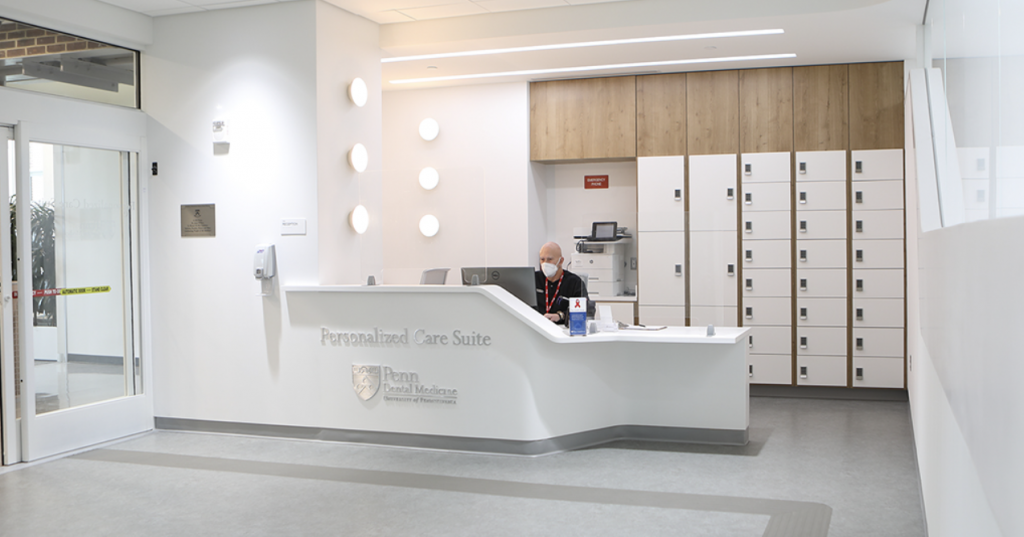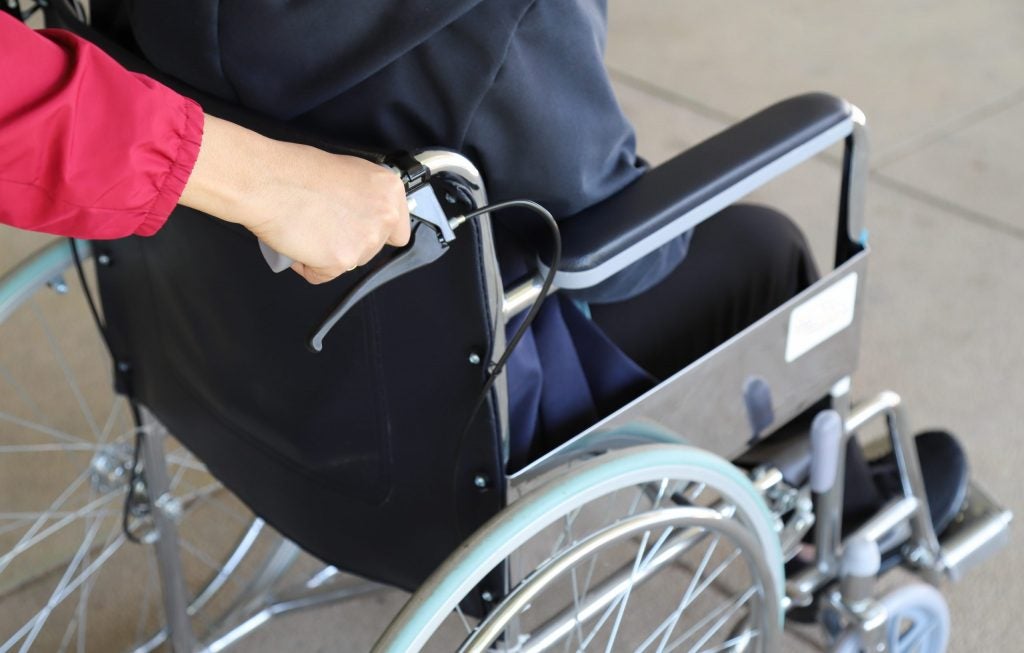If you’re seeking a dentist for special needs patients, you may be feeling frustrated.
The American Dental Association’s Code of Conduct prohibits denying dental care to patients with disabilities, whether physical, developmental, or intellectual. But despite this professional standard and the Americans with Disabilities Act, not every dental practice can or will accommodate people with special needs.
Barriers between people with disabilities and dental treatment include:
- Physically inaccessible facilities (for example, upper-floor practices without elevators).
- Physically inadequate facilities (for example, no dental chairs for those who can’t leave their wheelchair).
- Psychosocial issues (for example, anxiety about and fear of dental work, sometimes based on negative experiences in the past).
- Dentists who lack training or interest in dental care for patients with special needs (for example, 75% of dental students responding to a National Council on Disability survey said they had “little or no preparation” in providing such care).
Too often, these barriers mean people with disabilities must deal with poorer oral health than people who don’t have disabilities.
When you need a dentist for patients with special needs in Philadelphia and its suburbs, you can trust the skilled and committed dental team at Penn Dental Medicine (PDM).

PDM’s student dentists are being trained by dentists from the University of Pennsylvania’s School of Dental Medicine—nationally and internationally recognized leaders in the field.
Learning how to provide dental care for patients with disabilities is the norm in their dental education, not the exception. Our students spend approximately 10% of their clinical education time treating patients in our Care Center for Persons with Disabilities.
Giving Patients with Disabilities the Specialized Care They Need
The Personalized Care Suite at the Care Center for Persons with Disabilities is a state-of-the-art, innovative facility where patients age 14 and older with disabilities can get the quality care they need for improved oral health.
Every aspect of the Care Suite removes barriers to dental treatment, setting the stage for patient-centered experiences and positive outcomes. It features:

- Easy physical navigability.
Elevators, extra-wide corridors (large enough to accommodate two wheelchairs, side by side), and a spacious treatment bay with six dental chairs means the Care Suite has ample room to move and treat patients.
- Private examination, treatment, and consultation settings.
Privacy partitions separate the dental chairs in the open bay. Our dentists see patients who want or need maximum privacy in our six closed operatories. These rooms have adjustable lighting and blackout shades to ensure privacy and comfort. We discuss treatment plans with patients and their caregivers in large, private consultation rooms to ensure confidentiality.
- Specialized care rooms for patients who aren’t ambulatory.
Patients needing treatment on a stretcher or in their wheelchair use our three rooms with hydraulic-operated hover chairs. Those who would rather sit in their wheelchair than a dental chair can use our wheelchair lift. It tilts them and their wheelchair back for examination and treatment.
- Protection against sensory overstimulation.
Our quiet room has low lighting, padded flooring, and sound baffling to reduce and eliminate anxiety-triggering sensory stimuli for patients. It’s also an ideal setting for patient and provider to get to know each other before treatment begins.
- Options for relaxation and sedation, only as necessary.
Unlike some, our dentists don’t use general anesthetic or intravenous sedation simply to make their own work easier. If and when the need arises, they can deliver nitrous oxide. Nitrous oxide relaxes patients without making them fall asleep.
- Precision diagnosis for targeted treatment.
To ensure our dental team gives patients appropriate care, each chair in our open bay is equipped with digital radiology. The Care Suite also has a radiology room that uses cone-beam imaging technology with patients who can’t tolerate conventional X-ray imaging.
- Innovative dental self-care products.
Through the Care Center’s Colgate Innovation Laboratory, patients may, with their consent, participate in initiatives to develop new products that empower people with disabilities to better manage their own oral health.
Don’t feel frustrated trying to find a dentist for special needs patients any longer. Make an appointment at the Personalized Care Suite at Penn Dental Medicine today.

